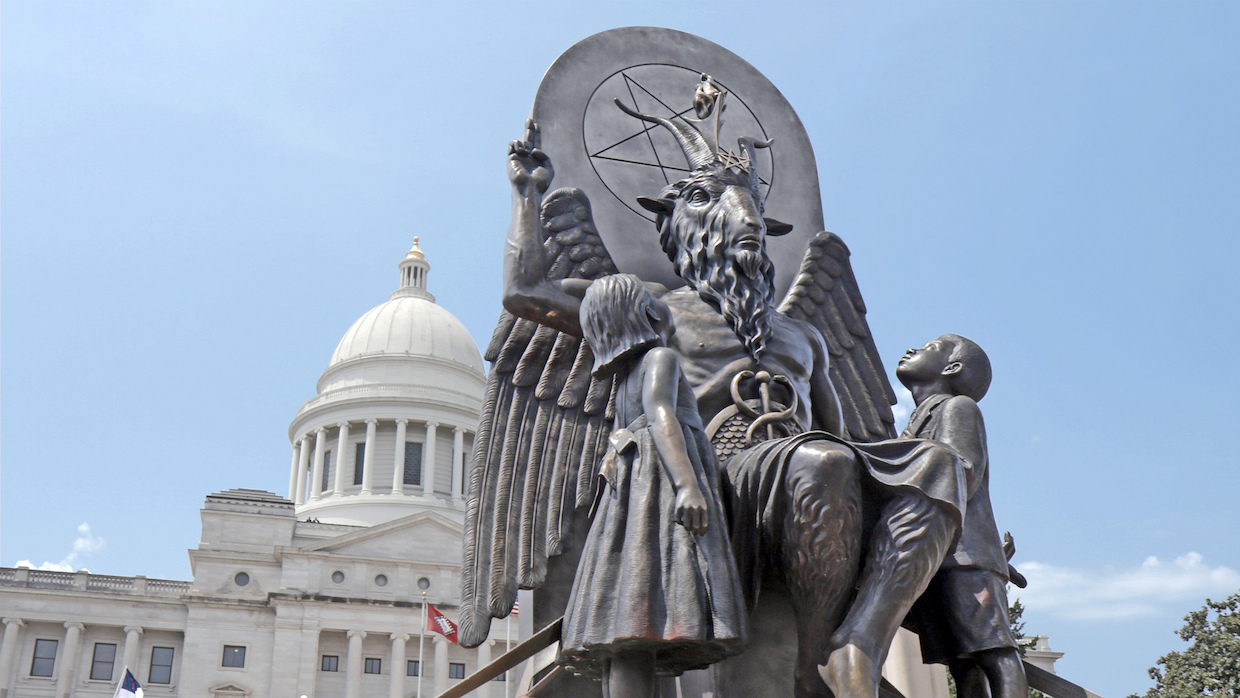 Back to selection
Back to selection
“Are We Comparing Trimming Unnecessary Footage with Murdering One’s Infant Child?”: Director Penny Lane | Hail Satan?
 Hail Satan?
Hail Satan? Whenever directors watch their own films, they always do so with the knowledge that there are moments that occurred during their production — whether that’s in the financing and development or shooting or post — that required incredible ingenuity, skill, planning or just plain luck, but whose difficulty is invisible to most spectators. These are the moments directors are often the most proud of, and that pride comes with the knowledge that no one on the outside could ever properly appreciate what went into them.
So, we ask: “What hidden part of your film are you most privately proud of and why?”
The last phase of editing is mostly erasure. People talk about “killing your babies,” which is a disgusting metaphor I never use, because… what? Seriously? Are we comparing trimming unnecessary footage with murdering one’s infant child?! Just… no. Please let us find another metaphor.
Anyway, in this last phase of editing, if you are doing your job correctly, you say bye-bye to a lot of things that once seemed not only beloved but necessary. It’s a shocking series of simplifications, each wonderful victory tarnished only by the knowledge that nobody will ever know you made these excellent choices. Everything just seems so… obvious, even banal, when the edit starts to really work: well yeah, duh, of course this and then this and then this, with the emphasis here and not there… To the audience, at least in most cases, the editing will ideally seem as natural and inevitable as daydreak.
This is always true, but I felt this especially acutely on Hail Satan? I worked with two remarkable editors, Amy Foote and Aaron Wickenden. The edits on my previous three features stretched into years (and years, and years); on Hail Satan? the whole edit was something like six months, concurrent with the bulk of shooting. With this kind of compressed timeline, the a-ha moments, with their rippling consequences and the satisfaction of pieces falling into place, came faster than I had ever experienced before. Boy, was that fun!!!
Going into the very last week of editing, we got some really good and clarifying notes from our friend David Teague. We had an opening that worked, but he made suggestions for radically simplifying it. Suddenly I could see that there were all these vestiges or ghosts of old ideas gumming up the works. What David was suggesting seemed so… duh, obviously. Still, we had only a few days left to deliver a locked picture, and we had a lot of other problems to solve, so ripping the entire first 20 minutes apart was a frightening thing to even consider. My producer Gabriel Sedgwick audibly gulped when the idea was raised, and for good reason. I’m super proud of my editorial team for not hesitating to take up the challenge to make the film even better when we knew we already had something good. It was a lot of extra work and stress when it seemed we were already pretty much home free, it was completely worth it, and nobody will ever know about any of it.
